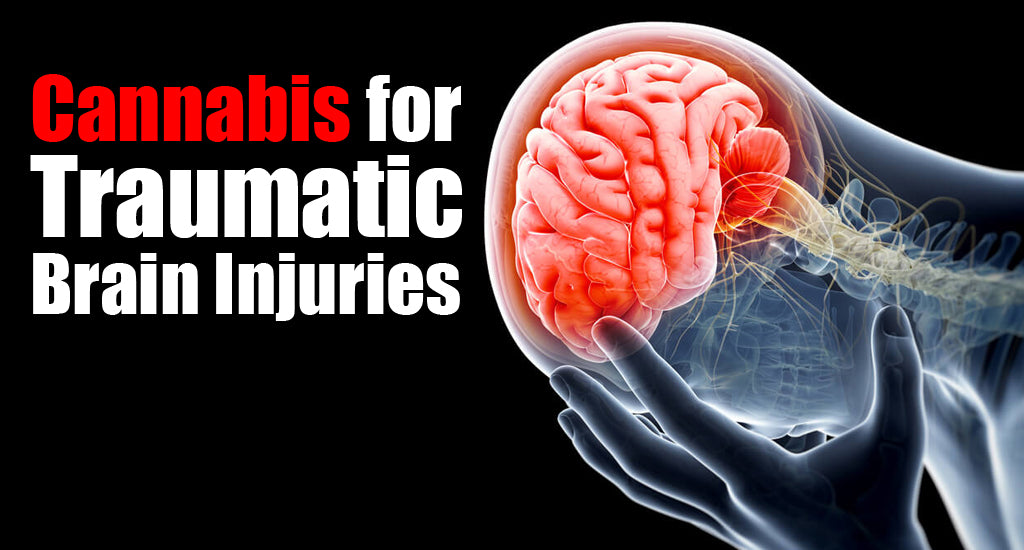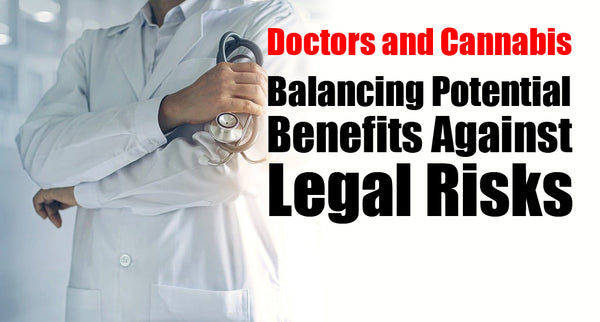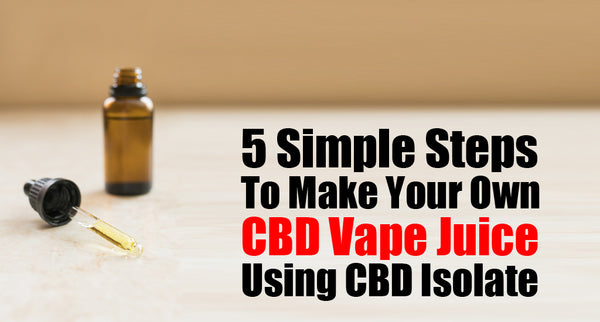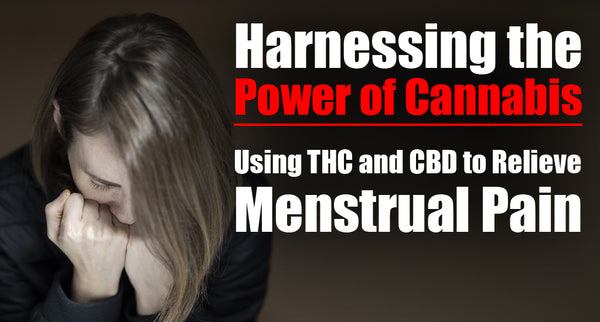
Cannabis for Traumatic Brain Injuries
The moment all athletes dread can strike faster than you can blink: the dreaded traumatic brain injury.
According to the Canadian Journal of Neurological Sciences, “Traumatic brain injury (TBI) is the leading cause of death and disability among individuals younger than 45 years old in the USA.”
TBIs also qualify for a medical marijuana card, which raises the question: How does cannabis help with traumatic brain injuries, and which products are beneficial for someone with a TBI?
To understand cannabis’s role, we need to look at what happens in the brain during a severe impact.
The Science Behind Traumatic Brain Injuries
We'll narratee an Ohio State athlete’s recent injury, providing a play-by-play of his body's response. Then, we'll examine current research on how cannabinoids interact with the body before and after a brain injury. Lastly, we'll review the best cannabis products to consider.
Kyle’s sprinting towards Villanova’s basket. He can hear the squeaks of sneakers catching up to him as the ball continues to rebound off the court floor and find purchase in his hand. There are nine minutes left in this NCAA Tournament game.
He’s past the half-court line.
Villanova white and blue appear in his right periphery, fuzzy and wriggling. He turns his head slightly to check the distance, ensuring he misses the other player boxing him in from the left.
He’s at the three-point line.
He gets closer to the basket and lands a jump shot, applause erupting from Ohio fans. But on the way down from his jump shot, the left side of his head crashes into the shoulder of Villanova’s #2. He stumbles and lands in a sitting position on the key.
Sounds become muffled as the ringing in his ears takes over. He tries to get up and continue the game, but something’s not right. He’s promptly pulled from the game and ushered towards onsite medics.
At this point, Kyle's body is initiating a complex response to the injury. The impact causes a cascade of biochemical events, including inflammation and neuronal damage. Current research indicates that cannabinoids, such as CBD, can help reduce inflammation and protect neural pathways both before and after a brain injury.
To address these needs, some of the best cannabis products to consider include high-CBD oils and tinctures, which have shown promise in reducing inflammation and promoting brain health. Topical CBD products might also provide localized relief and support recovery.
By understanding the body's response to TBIs and the potential benefits of cannabis, athletes like Kyle can find new ways to manage and recover from their injuries.
The Science Behind Traumatic Brain Injuries
Well before Kyle was assessed, his brain immediately kicked into action, sending excitatory neurotransmitters (glutamate) to the impact site to induce inflammation. Reduced blood flow via inflammation protects the body from bleeding out and gives cells time to initiate healing processes.
However, Kyle still has lingering damage from the three concussions he’s suffered in the last year, and swelling can only do so much in a confined space like his skull.
The excitatory neurotransmitters orchestrate a massive influx of Ca²⁺ (calcium ions) into his brain cells. The surrounding cells willingly lend Ca²⁺, receptors in his brain promptly create Ca²⁺, and adjustments to cell electrical currents further induce the creation of Ca²⁺.
Ca²⁺ does more than build strong bones. It’s also a key ion that keeps the brain functioning correctly and efficiently, one cell at a time. Our brains are programmed to send Ca²⁺ into brain cells when they’re damaged to return each cell to homeostasis (stable equilibrium).
Ca²⁺ reaches his damaged and inflamed brain tissue and begins repairs. But more and more Ca²⁺ show up like a tidal wave of construction workers descending onto one building, each fighting for a chance at a paycheck.
His brain’s neurotransmitters are still receiving signals that the injury needs attention, and these neurotransmitters refuse to slow or stop the call for aid. Some of his brain cells are now so full of Ca²⁺ that they can’t perform any of their usual functions.
In such scenarios, cannabinoids, particularly CBD, have shown potential in moderating this response. CBD can help reduce the excessive release of glutamate and mitigate the calcium overload, providing neuroprotection and supporting the brain's natural healing processes. Products like CBD oils and tinctures can be beneficial for athletes like Kyle, helping to manage inflammation and promote recovery from TBIs.
And so these cells begin to die.
Noticing this, his brain begins to flush glutamate to stop the overproduction of Ca²⁺. However, for many of his brain cells, it’s too little too late.
It’s been five minutes since the injury. Medics have officially removed him from the game and sent him to the locker room with recommendations to seek additional medical attention. His brain will continue to regulate glutamate, Ca²⁺, and other resources needed for cell regeneration and function.
He’ll experience reduced memory retention and slowed motor function for at least a week. It’s likely he’ll have life-lasting effects after this fourth TBI.
When he arrives at the hospital, medical professionals will order brain imaging to check for excessive swelling and blood clots. They’ll likely administer medications to reduce swelling or inhibit glutamate release to prevent future swelling.
Understanding the role of cannabinoids, particularly CBD, can be crucial in these situations. CBD may help by reducing inflammation, moderating glutamate release, and protecting brain cells from further damage. Products like CBD oils and tinctures could be beneficial for athletes like Kyle, aiding in managing inflammation and supporting recovery from TBIs.
Cannabis for Traumatic Brain Injuries
The most common causes of TBIs according to the CDC are:
- Falls that include head injury
- Attempted fire-arm suicide
- Car accidents
- Assault
Additional causes of TBIs are:
- Sports related injuries
- Explosion injuries (mining, war, and construction)
- General accidents (hammer injuries and falling objects)
According to the International Cannabis and Cannabinoids Institute, cannabinoids like THC and CBD “are particularly relevant in their ability to counteract “glutamate excitotoxicity,” which leads to neuronal demise after traumatic brain injury.” This suggests that cannabis could be a preventative and post-TBI treatment option.
The human body has receptors in the brain (and many other parts of the body) that digest and use cannabinoids like THC and CBD to support healthy “motor control, cognition, emotional responses, motivation, and homeostasis” as well as regulating “the autonomic nervous system (ANS), immune system, celular circulation, hormonal regulation, and gastrointestinal function.”
Furthermore, they “have been extremely helpful in treatment of chronic traumatic encephalopathy (CTE) symptoms: headache, nausea, insomnia, dizziness, agitation, substance abuse, and psychotic symptoms,” which are very common symptoms for high-contact sport athletes.
According to The Journal of Neurochemistry, CBD has been shown to reduce inflammation and oxidation following acute brain damage and recent studies are revealing “that CBD could represent a novel approach for the management of neuropsychiatric disorders associated with TBI.”
Sports Medicine recently published an article discussing CBDs ability to protect the brain, noting that “chronic CBD administration (equating to ~ 51 mg/day…) reduces dysfunctions relating to the anxious, aggressive and depressive behaviors often exhibited following mTBI.”
Children and Adolescents with Traumatic Brain Injuries
Though research is heavily suggesting that cannabinoids aid in the pre- and post-treatment of TBIs, it’s important to note that the latest research also suggests cannabis may be a treatment strictly for adults with fully developed brains.
A study at Cambridge University in 2019 found that “evidence of four separate young adults with a history of TBI suggests that cannabis use might increase the risk of developing psychosis… even in the absence of a positive family history for schizophrenia.”
The human body naturally produces endocannabinoids, whose structures and behaviors are eerily similar to the phytocannabinoids found in the cannabis plant (THC and CBD). This would suggest that young, developing brains don’t need additional cannabinoids beyond what their bodies produce and that adding cannabis to a young adult’s diet may be giving them a psychological disadvantage.
What to Look For in TBI Cannabis Products
For TBI sufferers with a fully developed brain, there are many products available in the legal cannabis market that may assist with both lessening the blow of TBIs and reducing post-TBI symptoms.
Finding the right doses and cannabinoid ratios of cannabis products, however, varies from person to person. Since our bodies naturally produce endocannabinoids, each person experiences the benefits of phytocannabinoids in different ways and at different tolerance levels.
With this in mind, it’s always best to start with the science - for TBIs specifically, research suggests finding products with more CBD than THC. From there, the best strategy is to consume a low dose (one serving size), analyze your experience and the effects the product has on your TBI symptoms, and then consume more as needed (one serving size at a time).
It’s important to note that edibles (cannabis products that you consume by eating or drinking) can take up to 90 minutes to take effect, depending on your metabolism.
Products with a high CBD and low THC ratio won’t provide much of a psychoactive effect, if any, because CBD is non-psychoactive (doesn’t get you high) and also reduces the psychoactive effects of THC.
As you try various products, doses, and ratios, you’ll find the ‘goldilocks’ combo for managing your symptoms. Keeping a cannabis journal to track your self-medication can not only help you find this goldilocks combo, but also help you discuss your cannabis use with your doctor (always recommended).
It’s also important to keep an eye on the other active ingredients in cannabis products, especially when using them for medicinal reasons or when inhaling them, as inhalation is a direct pathway into your central nervous system (CNS).
Cannabis Products with TBIs in Mind
1. Fairwinds Cannabis’ Mental Balance capsules

Fairwinds Cannabis’ Mental Balance capsules not only have CBD and THC, but they also have other cannabinoids (CBN and CBG), an herbal blend (ashwagandha, ginseng, theanine, magnolol, passion flower, valerian root), Vitamins B5, B6, B12, D, and Coconut Flakes.
While this product may get rid of mental fog, help you relax, reduce inflammation and anxiety, help brain cells repair themselves and function normally, this product isn’t a good idea for someone with diabetes due to the added ingredients.
2. Happiest Self Fast-Tabs

Green Revolution’s Happiest Self Fast-Tabs are high CBD tablets that dissolve and digest quickly and also include “the anti-inflammatory and mood boosting powers of L-Theanine and Matcha to support your wellbeing.”
3. Verdure

Verdure has quite a few high CBD:low THC products, but their 40:1 Honey & Lemon tincture is a great option for those wishing to avoid energetic supplements. They “begin with a base of coconut & avocado oils and seamlessly blend it with high-quality cannabis extract & essential oils. The result is a uniquely clean, subtle flavor that allows for regular dosage without overpowering your palate.”
But not everyone wants to pop capsules or pull a tincture out of their purse as they’re out and about living their social lives. A tin of mints, however, is much more inconspicuous.
4. Mr. Moxey's

Mr. Moxey’s has one of the largest varieties of infused mints on the market. Their Zen 15:1 Peppermint mints are a powerful, subtle way “to bring equilibrium to any occasion.”
For TBI sufferers who just can’t get enough of the cannabis vaping scene, it’s best to search for inhalables produced by seasoned and respected brands like MFUSED. Considering the legal cannabis industry is still well in its infancy, it’s hard to find cannabis extraction companies with over a decade of extraction experience.
5. MFUSED’s Balance cartridges

MFUSED’s line of Balance cartridges are ideal for medicinal users, as they have multiple CBD:THC ratios to choose from and their oil is full spectrum, meaning that they not only extract THC and CBD from the cannabis plant, but also all of the less prevalent cannabinoids and terpenes.
A Look Into the Future
As cannabis continues to be legalized across the U.S. and internationally, and we continue to explore the medicinal applications of cannabinoids, we’ll see more innovative products hit the cannabis market. Many cannabis brands are updating the language on their packaging to convey the types of experiences their products are likely to provide, as opposed to stating generic terms like ‘indica’ and ‘sativa.’
The industry on the whole is anxious and eager for federal legalization of cannabis, which would certainly attract a massive influx of entrepreneurs and product manufacturers into the newly legalized industry.
The Cannabis Health Index suggests “large cannabis leaves eaten in a salad or made into a juice may contain preventative properties in the context of neurological disorders.” Wouldn’t it be nice to combat the side effects of a traumatic brain injury with a salad or glass of juice?
ABOUT THE AUTHOR
Morgan Worley is a business development professional with a passion for the cannabis industry. After seeing the medicinal benefits cannabinoids can have, she decided to transition from opening new restaurants and coffee shops to working in the cannabis industry. Since 2018, Morgan has gained experience in the industry as a medical consultant, dispensary manager, cannabis trade show producer and traceability software saleswoman.



